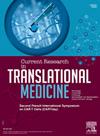Organ transplantation in Africa: Confronting socioeconomic, cultural, and infrastructural hurdles
IF 3
4区 医学
Q2 MEDICINE, RESEARCH & EXPERIMENTAL
引用次数: 0
Abstract
Background
Organ transplantation is a critical procedure offering life-saving treatment for patients with end-stage organ failure. In Africa, however, the accessibility and development of organ transplantation are severely hampered by numerous barriers. Socioeconomic disparities, inadequate healthcare infrastructure, legal and ethical gaps, cultural resistance, and the dual burden of infectious and non-communicable diseases are among the significant challenges faced. This review aims to comprehensively explore these barriers and propose actionable strategies to address them.
Method
A narrative review was conducted by searching electronic databases, including PubMed, Google Scholar, Scopus, and JSTOR. The review prioritized studies addressing the challenges of organ transplantation in Africa, focusing on socioeconomic factors, healthcare infrastructure, cultural beliefs, legal frameworks, and the impact of infectious and non-communicable diseases. Studies offering solutions tailored to the African context were also included.
Results
The review identified several key obstacles, including high costs of transplantation, a limited number of transplant centers, and a critical shortage of skilled healthcare professionals. Cultural beliefs and widespread misconceptions impede organ donation acceptance. Additionally, infectious and non-communicable diseases complicate the transplantation process and outcomes. Weak legal frameworks exacerbate the risks of organ trafficking and unethical practices, while low public awareness further undermines efforts to enhance organ donation rates.
Conclusion
Addressing these multifaceted challenges necessitates a comprehensive approach. Strengthening healthcare infrastructure, enhancing capacity-building programs, developing robust legal and ethical frameworks, and implementing targeted public education campaigns are critical for improving organ transplantation in Africa.
非洲的器官移植:面对社会经济、文化和基础设施障碍
器官移植是终末期器官衰竭患者救命治疗的重要手段。然而,在非洲,器官移植的可及性和发展受到许多障碍的严重阻碍。社会经济差距、保健基础设施不足、法律和道德差距、文化阻力以及传染病和非传染性疾病的双重负担是面临的重大挑战。本综述旨在全面探讨这些障碍,并提出解决这些障碍的可行策略。方法通过检索PubMed、谷歌Scholar、Scopus、JSTOR等电子数据库进行综述。审查将解决非洲器官移植挑战的研究列为优先事项,重点是社会经济因素、保健基础设施、文化信仰、法律框架以及传染病和非传染性疾病的影响。提供适合非洲情况的解决办法的研究也列入其中。结果该综述确定了几个主要障碍,包括移植费用高、移植中心数量有限以及熟练的医疗保健专业人员严重短缺。文化信仰和普遍的误解阻碍了器官捐赠的接受。此外,传染病和非传染性疾病使移植过程和结果复杂化。薄弱的法律框架加剧了器官贩运和不道德做法的风险,而公众意识低下进一步破坏了提高器官捐献率的努力。应对这些多方面的挑战需要采取综合措施。加强医疗基础设施、加强能力建设项目、制定健全的法律和道德框架以及实施有针对性的公共教育运动,对于改善非洲的器官移植至关重要。
本文章由计算机程序翻译,如有差异,请以英文原文为准。
求助全文
约1分钟内获得全文
求助全文
来源期刊

Current Research in Translational Medicine
Biochemistry, Genetics and Molecular Biology-General Biochemistry,Genetics and Molecular Biology
CiteScore
7.00
自引率
4.90%
发文量
51
审稿时长
45 days
期刊介绍:
Current Research in Translational Medicine is a peer-reviewed journal, publishing worldwide clinical and basic research in the field of hematology, immunology, infectiology, hematopoietic cell transplantation, and cellular and gene therapy. The journal considers for publication English-language editorials, original articles, reviews, and short reports including case-reports. Contributions are intended to draw attention to experimental medicine and translational research. Current Research in Translational Medicine periodically publishes thematic issues and is indexed in all major international databases (2017 Impact Factor is 1.9).
Core areas covered in Current Research in Translational Medicine are:
Hematology,
Immunology,
Infectiology,
Hematopoietic,
Cell Transplantation,
Cellular and Gene Therapy.
 求助内容:
求助内容: 应助结果提醒方式:
应助结果提醒方式:


